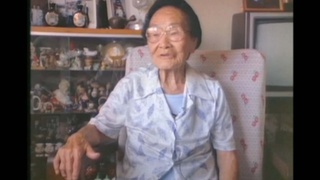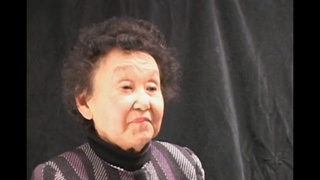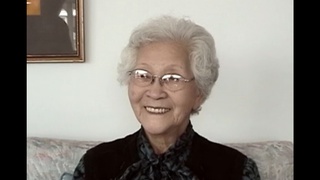Interviews
Washing for Filipino bachelors
She (my mother) got up early in the morning to do her laundry for the Filipino bachelors. And there were no washing machines in those days, so everything had to be pounded and all the red dirt she had to scrub with a red soap, they call it red soap. And then after scrubbing and pounding, she would take it outdoors and boil in a big, huge can over an open fire. And that was heavy work, you know, in her pregnant condition. And so, she got up 4:30 and did her laundry and then late at night, she would do her ironing. And we had...she had only a charcoal iron to do her ironing. And so, she had to first heat the charcoal on a hibachi, and she had to feed the charcoal iron, if at the plantation village, she had to feed the charcoal iron—I mean, the charcoal into that cast iron. It was very heavy.
And we had only one electricity dangling from the ceiling. So, with that one light in the ceiling, I did my homework late at night. I was the last one to go to bed and I kept my mother company because she used to do ironing on the floor, with the ironing board. And so, under the single light, I would do my homework for English school and Japanese school.
Date: February 19, 2004
Location: Hawai'i, US
Interviewer: Lisa Itagaki, Krissy Kim
Contributed by: Watase Media Arts Center, Japanese American National Museum.












